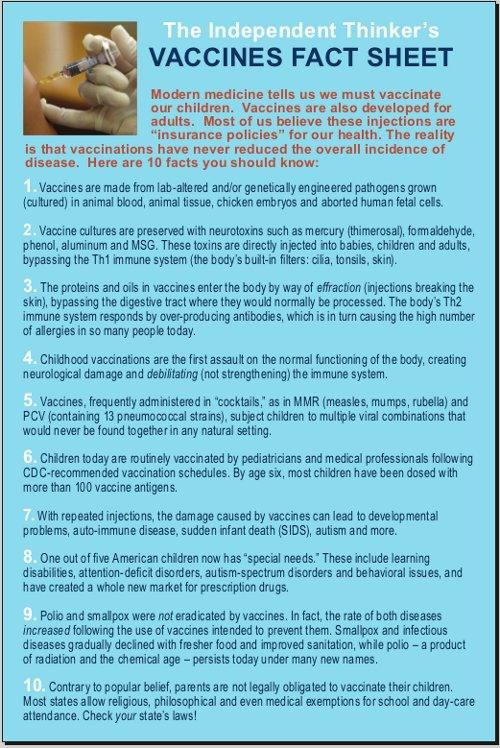- posted: Apr. 29, 2016
Links between Antibiotics and Autism:
We wanted to share a snippit from the abstract of the following study: "Commonly Prescribed Antibiotic Implicated in the Cause of Autism". The study addressed the antibiotic Augmentin, which is commonly prescribed for children with ear infections. "The antibiotic Augmentin TM has been implicated in the formation of autism. The study strongly suggests the possibility of ammonia poisoning as a result of young children taking Augmentin. Augmentin has been given to children since the late 1980's for bacterial infections. Composed of amoxicillin and clavulanate potassium, Augmentin has proven a potent antibacterial, especially for ear infections which quickly become resistant to amoxicillin alone." -Dr Joan Fallon
We all know that antibiotics are incredibly disruptive to our gut flora. Antibiotics are prescribed to fight off 'bad bacteria', but in the process the healthy 'good bacteria' in the gut is killed off as well. Now, how does that relate to cases of Autism Spectrum Disorders (ASDs)? When we finish a round of antibiotics, the gut will attempt to repopulate the gut flora (bacteria) which helps to digest our food and extract the nutrients that we need from that food. While the body tries to recreate the balance of gut flora that was present before the round of antibiotics, that isn't always what happens. Often, the bad bacteria are faster to multiply causing an overgrowth and imbalance in the gut. This can cause a host of problems.
When these bacteria are overgrown, they can produce large amounts of amines (an organic compound derived from ammonia by replacement of one or more hydrogen atoms by organic groups). A recent discovery in Neuroscience is that there are receptor sites in the same areas in the brain as neurotransmitter (messenger chemical) receptors, suggests that gut bacterial overgrowth affects brain function. This finding suggests that excess amines can result in a scrambling of brain signals and affect learning, attention and mood. In a developing brain this can have serious implications in affecting development.
Other bacteria produce lipopolysaccharides that can cause a miriad of disruptive effects in the brain, affecting, memory, learning, attention and mood. They are highly inflammatory. Normally lipopolysaccharides cannot cross the gut lining unless there is a leaky gut (increased intestinal permeability) in which case they can enter the blood stream and get carried to the brain.
Links between Vaccines and Autism:


**Dr P also has copies of this vaccine fact sheet in the office if you would like a copy**
Have you heard about Vaxxed?

**Click on the photo to see the trailer of the film, which was pulled from the Tribeca film festival**
Links to studies associating vaccines to autism:
Our Non-Invasive Approach to ASD Therapy:
Functional neurology offers a non-pharmacological, noninvasive approach to treating children with autism spectrum disorders (ASDs). The brain controls everything in our body and mind— from thoughts to heart rate to muscle tone. Most people have a dominant hemisphere, or side, of the brain. This can easily be seen in personality traits. One person may be analytically minded, while another may be more creative by nature. Differences may also be subtle and not easily detected by the untrained eye. Our resident neurologist, Dr Michael Pierce has had great success in working with children with ASDs by working to integrate the brain and increase communication between the hemispheres, as well as between the frontal cortex and the mid-brain. This process includes a thorough exam and a prescription of neurological exercises and dietary intervention/supplementation. If you would like to hear more about our approach in treating those with ASDs, please contact the front desk.
Locations
--mi
Address
6940 South Holly Circle Suite 201
Centennial, CO 80112, US
Office Hours
Our Regular Schedule
Monday
8am - 1pm
3pm - 5pm
Tuesday
8am – 1pm
3pm – 7pm
Wednesday
Closed
Closed
Thursday
8am – 1pm
3pm – 7pm
Friday
8am – 2pm
Closed
Saturday
Closed
Closed
Sunday
Closed
Closed
Monday
8am - 1pm
3pm - 5pm
Tuesday
8am – 1pm
3pm – 7pm
Wednesday
Closed
Closed
Thursday
8am – 1pm
3pm – 7pm
Friday
8am – 2pm
Closed
Saturday
Closed
Closed
Sunday
Closed
Closed

